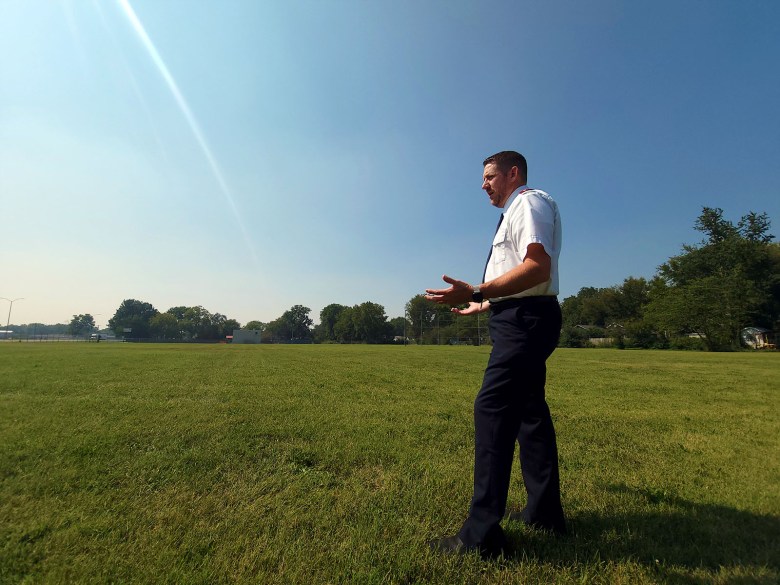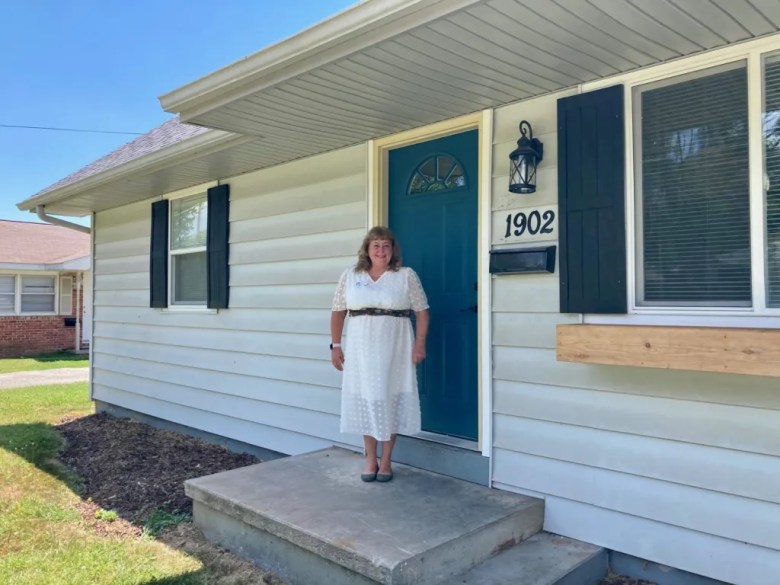All three Springfield nonprofits that applied for American Rescue Plan Act funding to create emergency shelters are in line for nearly $3 million, well above the amount allocated by the city for the program.
After being presented with recommendations from city government staff to award The Salvation Army more than $1.86 million and Women’s Medical Respite nearly $28,000 — leaving $0 for a third applicant, the Council of Churches of the Ozarks — Springfield City Council members requested the city dip into its dwindling ARPA account to award all three projects.
The City Council’s ARPA Review Committee met on Jan. 11 to identify funding for the Council of Churches of the Ozarks to secure a permanent location for its women’s shelter, Safe to Sleep. The committee is comprised of council members Matthew Simpson, Callie Carroll, Abe McGull and Heather Hardinger, though McGull was not present at Thursday’s meeting.
The City Council is set to vote on the awards for The Salvation Army and Women’s Medical Respite at its Jan. 22 meeting, and will consider the additional ARPA funding for the Council of Churches in February.
Awards determined by scoring criteria of each project
The Thursday meeting was prompted by Safe to Sleep’s ineligibility for ARPA awards that the City Council considered in its Jan. 8 meeting.
In 2023, the city of Springfield made nearly $1.9 million in Home-ARPA funding available for the development of emergency homeless shelters.
The Salvation Army applied for $1,861,680 for the nonprofit’s Lives Transformed capital project, which includes expanding its Family Enrichment Center, building a food pantry and relocating the Harbor House shelter for homeless men from downtown to a new building near its West Chestnut Expressway facility.
The new Harbor House building is slated to boast 60 beds, double its current capacity, while also doubling its current space for emergency shelter to 40 beds, according to Amos Shiels, the head of the Salvation Army in Springfield.

The Council of Churches asked for $1.1 million for Safe to Sleep, which currently operates out of a church gymnasium, and Women’s Medical Respite requested $144,442 to help finance a home it recently purchased for medically-fragile unsheltered women in Springfield.
In determining how to distribute the funds, city government staff used a formula that scored applications based on their experience with shelter operations and federal grant funding, if completion of the project will increase the number of shelter beds in the Springfield region, project readiness and the reliability and leveraging of other funding sources.
City staff recommended the City Council award $1,833,770 to the Salvation Army, $27,910 to the second-highest scorer, Women’s Medical Respite, and the Council of Churches $0.
Shiels told the Springfield Daily Citizen that the Salvation Army’s award, if approved, would be a great jumping point for an upcoming capital campaign and help fund early pieces of construction for the new Harbor House and associated projects.
“We’re excited that the city trusts us and that they’re supporting this project, but they’re also saying ‘Hey, we believe that what you’re doing matters and and in such a significant way,’” Shiels said. “I know they believe that about all the agencies and all the other groups, and we are grateful, and we will definitely be using it to better have a greater impact on the community.”
Women’s Medical Respite’s new five-bedroom house — which the organization is set to move into within a couple of months — will increase the number of women it can shelter from five to eight. City Council documents say the proposed use of the bulk of the funds requested for the project — paying debt on the house — is ineligible for ARPA revenue. The recommended award is for a furnace replacement, closing costs and smaller projects for the shelter.
Bob Jones, a grants administrator with the City of Springfield, attributed the Council of Churches’ lower score concerns around site control and that its plans for Safe to Sleep would not add shelter beds, but move its existing 50 beds into a permanent facility.

City Council finds funds for Safe to Sleep
Jaimie Trussell, the CEO of the Council of Churches, described the matter of site control as a “timing issue,” in that real estate negotiations were ongoing. A $1.1 million grant would allow the nonprofit to buy property for Safe to Sleep adjacent to its headquarters on East Division Street. The shelter is currently located in the gymnasium of Pathways United Methodist Church.
While appreciative of the church’s partnership, Trussell cautioned that the temporary location presented uncertainties for the future of Safe to Sleep.
“If the leadership of that church should change, if the neighborhood should cease to tolerate dozens of unsheltered guests in their neighborhood and certainly, if the church needs their gym, we are in danger of losing 50 beds,” Trussell told council members on Jan. 8.
Additionally, Safe to Sleep is only allowed to operate in Springfield’s Robberson neighborhood because of an economic calamity exception in city codes, which is up for renewal in 2024.
“I dream of the day when we don’t need an economic calamity provision to do the work of saving lives, which is what we do every single night,” Trussell said.
Trussell also said that Safe to Sleep never reaches its 50-person capacity, acknowledging the benefit of added shelter beds, but noting that Springfield’s homelessness problem is “much bigger than that.”

In addition to shelter, Safe to Sleep offers case management services. Those direct support services have resulted in permanent housing solutions for more than 140 women within the last five years.
Surplus funding for Safe to Sleep
Trussell’s explanation to council members of factors that contributed to the Council of Churches’ low score elicited consensus on council members to find an alternative means to fund Safe to Sleep.
With more than $2.5 million in unallocated ARPA funds, the ARPA Committee elected to recommend the City Council fully fund the Council of Churches’ entire request, recognizing a permanent location for Safe to Sleep as a “transformative” project that could save lives.
While the $1.1 million won’t fund the entire project, Trussell said it was enough, combined with a $1.9 million grant from the Missouri Department of Economic Development, to complete the first phase and open the facility.
Upon hearing of the ARPA’s Committee’s recommendation to award the Council of Churches’ original request, Trussell told the Daily Citizen that it felt like “a wonderful endorsement of the work we’re doing.”







